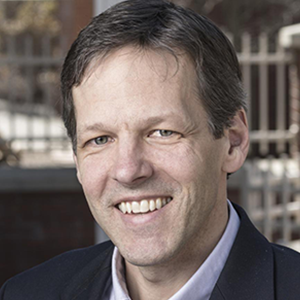Brian O’Neill Named New Director for the Joint Global Change Research Institute
New leadership has arrived at the Joint Global Change Research Institute (JGCRI).
JGCRI Director Brian O’Neill, an earth systems scientist, is working with the Department of Energy’s (DOE) Earth and Environmental System Modeling (EESM) program-funded scientists across projects within the MultiSector Dynamics (MSD) program area. The MSD projects include:
- Integrated Coastal Modeling (ICoM)
- Integrated Multisector, Multiscale Modeling (IM3) Scientific Focus Area
- Global Change Intersectoral Modeling System Scientific Focus Area
“Brian is a highly respected leader and has a distinguished career in multisector dynamics research,” says DOE MSD Program Manager Bob Vallario. “He is a recognized domestic and international expert in modeling and analysis of population dynamics and the influences and stressors that drive associated change and, more broadly, in modeling the integrated human-earth system.
“Applying these capabilities,” Vallario continues, “Brian has emerged as a significant force in the advancement of quantitative and qualitative scenario methods, combining human and environmental dimensions in ways that illuminate our understanding of the future and the associated uncertainties.”
JGCRI is a partnership between DOE’s Pacific Northwest National Laboratory (PNNL) and the University of Maryland. It brings together expertise in research, modeling, and analysis to advance scientific understanding of how human, energy, and environmental systems interact. Since its formation, JGCRI has provided foundational knowledge, capabilities, and tools used across research communities and disciplines, federal agencies, and intergovernmental bodies, both domestic and international.
“JGCRI is well known for its work studying energy, water, land, and climate interactions,” says O’Neill. “I’m looking forward to building on JGCRI’s strengths by examining how those systems interact with humans and society, what risks we face, and what opportunities there are to improve resilience.”
Vallario adds that as JGCRI’s new director, O’Neill fills a critical vacuum created by the departure of his predecessor. “I look forward to working with Brian to advance DOE’s science mission, and also with Kate Calvin, the new principal investigator for the PNNL Scientific Focus Area centered at JGCRI. Supported by an incredibly talented and capable pool of senior and junior research staff, the future at the institute looks bright.”
PNNL Associate Laboratory Director for Earth and Biological Sciences Malin Young says the Laboratory is excited to add a talented scientific leader in human-earth systems as the new JGCRI director. “His technical expertise will enable the JGCRI team to better understand the implications of major changes in both human and natural systems that we face in the coming decades.”
“Dr. O’Neill’s leadership and experience will greatly benefit JGCRI,” adds University of Maryland Vice President for Research Laurie Locascio. “His expertise and understanding of human-environment interactions will help advance the institute and expand the impact of its research contributions.”
Before joining JCRI, O’Neill was a professor at the Josef Korbel School of International Studies at the University of Denver. There, he served as director of research at the Frederick S. Pardee Center for International Futures.
From 2008 to 2018, O’Neill was a scientist at the National Center for Atmospheric Research in Boulder, Colorado. At NCAR, O’Neill led research groups on integrated modeling of climate and human systems. He worked six years at the International Institute for Applied Systems Analysis in Laxenburg, Austria, where he led the Population and Climate Change Program and co-led the institute’s Greenhouse Gas Initiative.
O’Neill earned a doctorate in earth systems science and a master’s degree in applied science from New York University. He completed his undergraduate work at the University of Delaware, earning bachelor’s degrees in English and journalism.
He has authored or co-authored more than 100 peer-reviewed scientific and technical papers and journal articles.

